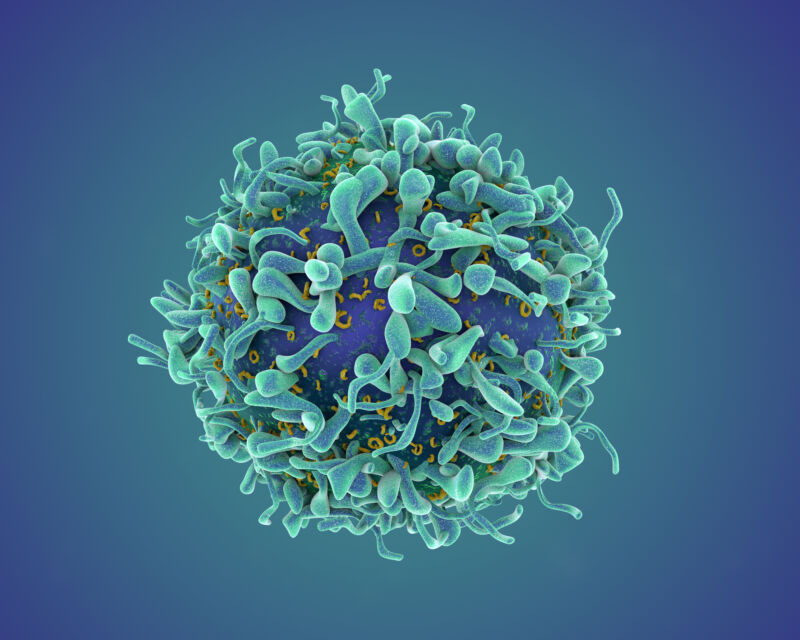Why don’t most foods cause allergies?

Enlarge / Artist's rendering of a T cell. (credit: Getty Images)
One of the adaptive immune system's primary jobs is recognizing foreign substances in our bodies and unceremoniously rejecting them by eliciting inflammation. So the fact that it lets about 100 grams of assorted foreign animal and plant proteins pass through our digestive systems every day with nary a peep is curious-food allergies are an exception.
The most common explanation for this oral tolerance" is that immune cells that react to proteins in food are generated but are preferentially killed or somehow inactivated. But most of the experiments leading to this conclusion were done with transgenic mice with a severely depleted T cell repertoire and thus lacked a normal immune response. New work published in Nature uses mice with a normal, functioning immune system to recheck this result.
The mice were reared on a gluten-free diet and then challenged with a portion of one of the gluten proteins called gliadin-a protein known to elicit a T cell response.
Read 5 remaining paragraphs | Comments